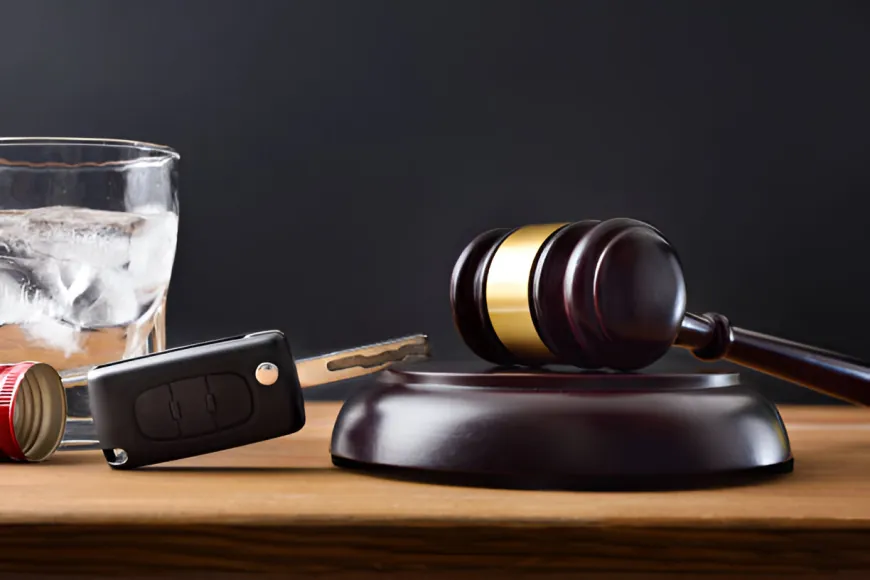Legal Recourse for Injuries Caused by Drunk Drivers
Explore your legal recourse options for injuries caused by drunk drivers and understand how to seek compensation effectively.

Drunk driving remains one of the leading causes of traffic accidents, leading to devastating injuries and fatalities. When victims of such incidents find themselves dealing with the aftermath, understanding their legal recourse is crucial. The process can be complex, involving insurance claims, legal representation, and potential court actions. This article will provide an overview of the options available for those injured by drunk drivers, guiding them through their rights and how to pursue the compensation they deserve.
Drunk Driving and Its Consequences
Drunk driving is not just a dangerous choice; it is also a violation of the law. When a driver operates a vehicle under the influence of alcohol or drugs, they not only endanger their own life but also the lives of others on the road. The consequences of drunk driving can be severe, leading to injuries that may require long-term medical treatment, rehabilitation, and psychological support. Understanding these consequences is the first step in recognizing the need for legal recourse.
Types of Injuries Caused by Drunk Drivers
Injuries sustained in drunk driving accidents can vary widely, ranging from minor to life-threatening. Common injuries include:
- Traumatic Brain Injuries (TBI): Often caused by impact during a collision, TBIs can lead to significant cognitive and physical impairments.
- Spinal Cord Injuries: These can result in paralysis or loss of mobility, drastically affecting the victim's quality of life.
- Fractures and Soft Tissue Injuries: Broken bones and strains or sprains can require extensive medical treatment and time off work.
- Emotional and Psychological Trauma: The impact of being involved in a traumatic event can lead to long-lasting emotional distress, including anxiety and PTSD.
Recognizing the extent of these injuries is essential in seeking appropriate legal recourse.
Role of Insurance in Drunk Driving Accidents
In most cases, victims of drunk driving accidents will first turn to insurance companies for compensation. Understanding how to navigate this process can be crucial in securing a settlement. Here are key points to consider:
- Liability Insurance: Most drivers are required to carry liability insurance, which is intended to cover damages caused to other parties in the event of an accident.
- Uninsured/Underinsured Motorist Coverage: If the drunk driver does not have adequate insurance, victims may be able to pursue claims against their own insurance policies.
- Personal Injury Protection (PIP): This can help cover medical expenses and lost wages regardless of who was at fault in the accident.
While insurance can provide some relief, it may not cover all the costs associated with injuries. Therefore, understanding the full scope of your legal recourse options is critical.
Seeking Compensation through Legal Action
If insurance claims do not adequately cover the damages, victims may need to pursue legal action against the drunk driver. This typically involves filing a personal injury lawsuit. Here are steps to consider:
- Gather Evidence: Collect all relevant information from the accident scene, including police reports, medical records, witness statements, and photographs of the accident.
- Consult with an Attorney: Engaging with an experienced attorney who specializes in personal injury or drunk driving cases can help navigate the complexities of the legal system.
- File a Lawsuit: If negotiations with insurance companies fail, your attorney may file a lawsuit against the at-fault driver. This could involve seeking compensation for medical bills, lost wages, pain and suffering, and more.
In some cases, an Employment Law Firm in Fresno may be necessary if your injury impacts your ability to work, allowing you to explore claims related to lost wages or workplace accommodations.
Damages in Drunk Driving Cases
Victims of drunk driving accidents can seek various types of damages, including:
- Economic Damages: These cover tangible losses such as medical expenses, lost income, and property damage.
- Non-Economic Damages: These include compensation for pain and suffering, emotional distress, and loss of enjoyment of life.
- Punitive Damages: In cases of gross negligence or willful misconduct, courts may impose punitive damages to punish the offender and deter similar behavior in the future.
Understanding the types of damages available is vital in determining the appropriate legal recourse to pursue.
Importance of Time
Every state has a statute of limitations that dictates how long a victim has to file a lawsuit after an accident. In many jurisdictions, this period can range from one to six years, depending on the nature of the case. It is essential to be aware of these timelines to ensure you do not forfeit your right to pursue compensation. Prompt action can make a significant difference in the outcome of your case.
Emotional Aspect of Recovery
Beyond the physical injuries, being involved in a drunk driving accident can take a significant emotional toll. Victims often experience anxiety, depression, and post-traumatic stress disorder (PTSD). This is where Reiki Healing Online can play a vital role. Engaging in Reiki healing can help victims cope with emotional trauma, promote relaxation, and foster a sense of peace during recovery.
Incorporating holistic healing methods like Reiki can complement traditional therapies, providing a more comprehensive approach to healing. This integration emphasizes the importance of addressing emotional well-being alongside physical recovery.
Conclusion
The aftermath of an accident caused by a drunk driver can be overwhelming. Understanding your legal recourse is essential in navigating the complexities of recovery, from pursuing insurance claims to seeking legal action. Victims have the right to seek compensation for their injuries and their impacts on their lives. By educating yourself about the options available and working with experienced professionals, you can take the necessary steps to secure the compensation you deserve while also caring for your emotional and mental health during the healing process.












